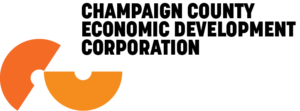Incentives
Enterprise Zone
The Illinois Enterprise Zone Program is designed to stimulate economic growth and neighborhood revitalization in economically depressed areas of the state through state and local tax incentives, regulatory relief and improved governmental services. Businesses located or expanding in an Illinois Enterprise Zone may be eligible for the following state incentives:
- Exemption on retailers’ occupation tax paid on building materials
- Expanded state sales tax exemptions on purchases of personal property used or consumed in the manufacturing process or in the operation of a pollution control facility
- An exemption on the state utility tax for electricity and natural gas
- An exemption on the Illinois Commerce Commission’s administrative charge and telecommunication excise tax
Exemptions are available for companies that make minimum statutory investments that either create or retain a certain number of jobs. These exemptions require a business to make application to, and be certified by, the Illinois Department of Commerce.
Local incentives:
The cities of Champaign, Urbana, and the Village of Rantoul each administer an Enterprise Zone.
- City of Champaign / Champaign County Enterprise Zone – Designation: 1/1/2016; Expiration: 12/31/2030
- The local program offers an abatement of the city, county, park district, mass transit, community college, and city township property taxes on the increased value of the project. The program also offers access to a waiver of sales tax for permanent materials used on the project and purchased in the State of Illinois. Projects must meet the criteria for one of the programs below to access this incentive:
- Targeted Neighborhood Improvement Program – Rehabilitation of existing owner and renter-occupied single-family housing
- Affordable Multifamily Housing Program – New and Rehab of Multi-Family Structures
- Commercial District Enhancement Program – Commercial rehab and new construction
- Employment Expansion Program – Employment generating rehabilitation and new construction
- Historic Structure Rehabilitation Program – Additional benefits for properties on the Local and National Register of Historic Places
- Tourism Development Program – New and Rehab of properties generating significant tourism traffic
- The local program offers an abatement of the city, county, park district, mass transit, community college, and city township property taxes on the increased value of the project. The program also offers access to a waiver of sales tax for permanent materials used on the project and purchased in the State of Illinois. Projects must meet the criteria for one of the programs below to access this incentive:
- City of Urbana / Champaign County Enterprise Zone – Designation: 1/1/2016; Expiration: 12/31/2030
- The Urbana Enterprise Zone provides financial incentives including property tax abatements and sales tax exemptions to eligible residential, commercial, and industrial construction within the Zone. Think Urbana is a program of the Urbana Enterprise Zone.
- Village of Rantoul Enterprise Zone – Designation: 12/30/2016; Expiration: 12/29/2031
Other Enterprise Zone resources:
- Illinois Enterprise Zone Association
- Illinois Department of Commerce
- Champaign County Regional Planning Commission
Foreign Trade Zone
Foreign-Trade Zones (FTZ) are secure areas under U.S. Customs and Border Protection (CBP) supervision that are generally considered outside CBP territory upon activation. Located in or near CBP ports of entry, they are the United States’ version of what are known internationally as free-trade zones.
Foreign Trade Zone 114 is a multi-modal zone (rail, air, river, road) serving the West Central, Central and East Central Illinois Region, providing over 2 million square feet of warehousing and distribution space available for General Purpose Zones usage and four Sub-Zone sites.
Learn more about the Village of Rantoul’s Foreign Trade Zone.
Employer Training Investment Program (ETIP)
The Employer Training Investment Program, or ETIP, was first authorized by the Illinois State Legislature in 1992. The program is designed to assist Illinois employers in providing training to full-time employees, which increases capacity, builds a stronger workforce, and creates a more competitive business climate in Illinois.
The Illinois Manufacturers’ Association has announced receipt of an ETIP grant for fiscal year 2019 through the Illinois Department of Commerce. The grant term will be July 1, 2018 through December 31, 2019. All training that occurs during this time period may qualify for reimbursement based on eligibility requirements.
- Participating companies must have a physical location in the state of Illinois and agree to train only their full-time Illinois based employees.
- Each participating company must complete a company profile identifying the company location from which their employees will be participating and schedules detailing all training each company has completed. The schedules must include number of participants, dates of training, and cost of training.
- Grant funds may be used to cover no more than 50% of actual approved expenses related to the training for a company’s full-time employees. Participating companies are required to fund a match amount of the remaining 50%.
Illinois Manufacturing Innovation Voucher Program
Presented by IMEC, the Illinois Manufacturing Innovation Voucher presents a bold opportunity for manufacturers to incorporate technology in their processes or products to sustain their competitive advantages. Using acquired knowledge from industry experts, voucher projects can help resolve minor technological issues or outline possible solutions for a more complex problem, resulting in innovation and market growth.
The Illinois Manufacturing Innovation Voucher will award up to $25,000 in match funding to:
- Accelerate Technology Adaption
- Identify and Implement Productivity Improvements
- Overcome Organizational Growth Barriers
Voucher projects must be conducted in Illinois is for existing Illinois manufacturers with between 5 and 500 employees. Projects are expected to be practical in nature and focus on productivity improvements and/or product development that lead to innovation and measurable gains.
Illinois Economic Development for a Growing Economy Tax Credit Program (EDGE)
Illinois’ EDGE program provides annual corporate tax credits to qualifying businesses which support job creation, capital investment and improve the standard of living for all Illinois residents.
Tax credit amounts are calculated on a case-by-case basis. EDGE credits are processed on an annual basis, for up to 10 years, based upon employment ramp-up plans outlined by the business and agreed to by the Illinois Department of Commerce.
View the EDGE reporting requirements.
Tax Increment Financing (TIF)
There are multiple Tax Increment Finance Districts (TIFs) in Champaign County. TIFs provide a means in which communities can financially assist in the development or redevelopment of an area which qualifies for state TIF criteria. Tax increment is the difference in the tax revenue generated before the property is developed or redeveloped and the tax revenue generated after the improvements have been made.
Local TIF links:
- City of Champaign
- City of Urbana
- Village of Fisher
- Village of Mahomet
- Village of Rantoul
- Village of Savoy
- Village of Tolono
Illinois Angel Investment Credit Program
The Illinois Angel Investment Tax Credit Program encourages investment in innovative, early-stage companies to help them obtain the working capital needed to further their growth in Illinois. Investors in companies certified as Qualified New Business Ventures (QNBVs) can receive a state tax credit equal to 25% of their investment (up to $2 million).
High Impact Business Program (HIB)
The High Impact Business Program (HIB) program supports large-scale economic development activities by providing tax incentives (similar to Enterprise Zones) to companies that make substantial capital investments in operations and create or retain an above average number of jobs. Businesses may qualify for: investment tax credits, a state sales tax exemption on building materials and/or utilities, a state sales tax exemption on purchases of personal property used or consumed in the manufacturing process or in the operation of a pollution control facility.
Eligible projects must invest a minimum of $12 million and create 500 full-time jobs, or $30 million investment with the retention of 1,500 full-time jobs. Investments must take place at designated locations in Illinois outside of an Enterprise Zone.
City of Champaign – Industrial Development Program (IDP)
The City of Champaign’s Industrial Development Program (IDP) was developed to encourage creation and retention of industrial jobs in the City of Champaign. To be eligible for IDP incentives, the project must meet the following criteria:
- Project Definition: In order to qualify as an industrial project, the primary use of the land and buildings must be of a manufacturing, assembly, wholesale and/or warehouse/distribution nature.
- Property Improvements: The applicant must complete permanent property improvements (either an expansion of an existing facility or construction of a new facility).
- Job Retention or Creation: The project must result in the creation or retention of at least twenty (20) jobs paying a minimum of two times the minimum wage. The created or retained positions must be permanent, full-time or full-time equivalent (FTE) positions created or retained as a result of the project.
View the full program policy.
Ameren Illinois Energy Efficiency Program
AmerenIllinoisSavings.com is a website dedicated to helping Ameren Illinois customers become smarter, safer energy consumers. Find energy efficiency tips, plus access to helpful programs, rebates and cost incentives.
Instant Incentives provides a simple and quick way for Ameren Illinois business customers to purchase energy-efficient products and receive an instant discount at the point of purchase online or via participating distributors. This offering provides incentives for LED bulbs, LED tube lighting, LED recessed lighting and Notched v-belts.
Champaign County Regional Planning Commission – Financing Programs
The Champaign County RPC’s Economic Development Division is a central resource for a variety of innovative financing programs for businesses, organizations, and governments in East Central Illinois. View the program summary sheet.
- Community Development Assistance Program (CDAP): Loans for businesses and organizations located anywhere in Champaign County. Loans between $5,000 and $1,000,000; up to 50% of the total project cost. Eligible for working capital, machinery, equipment, inventory, real estate, infrastructure projects, and many other uses.
- Intermediary Relending Program (IRP): Loans for businesses, organizations, and governments in communities of less than 25,000 population in the East Central Illinois counties of Champaign, Douglas, Ford, Iroquois, Piatt, and Vermilion. Loans between $5,000 and $250,000; up to 49% percent of the total project cost. Eligible for working capital, machinery, equipment, real estate, rural government infrastructure projects, and many other uses.
- Champaign County Community Development Corporation (CDC): Financing of businesses located anywhere in Champaign County and surrounding communities. Each CDC loan should be matched by member bank financing. Loans or equity investments; up to 50% of the total project cost. Eligible for working capital, machinery, equipment, real estate, and other uses. Participating member banks include BankChampaign, Busey Bank, Central Illinois Bank, Chase Bank, First Midwest Bank, Midland States Bank, and PNC Bank.
These RPC programs offer borrowers flexible terms, affordable interest rates, long-term fixed-rate financing, lower down-payment requirements, and reduced private-lender risk. RPC staff analyzes and structures the most attractive financing proposal based upon program requirements, project needs, employment, community impact, and private sector participation.
HUBZone Program
The SBA’s Historically Underutilized Business Zones (HUBZone) program helps small businesses in urban and rural communities gain preferential access to federal procurement opportunities. These preferences go to small businesses that obtain HUBZone certification in part by employing staff who live in a HUBZone. The company must also maintain a “principal office” in one of these specially designated areas.
Eastern Illinois Economic Development Authority (EIEDA)
The Eastern Illinois Economic Development Authority (EIEDA) can issue bonds on behalf of businesses in which debt service is payable exclusively from the earnings of the borrower.

